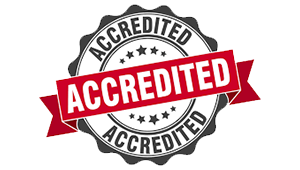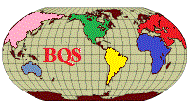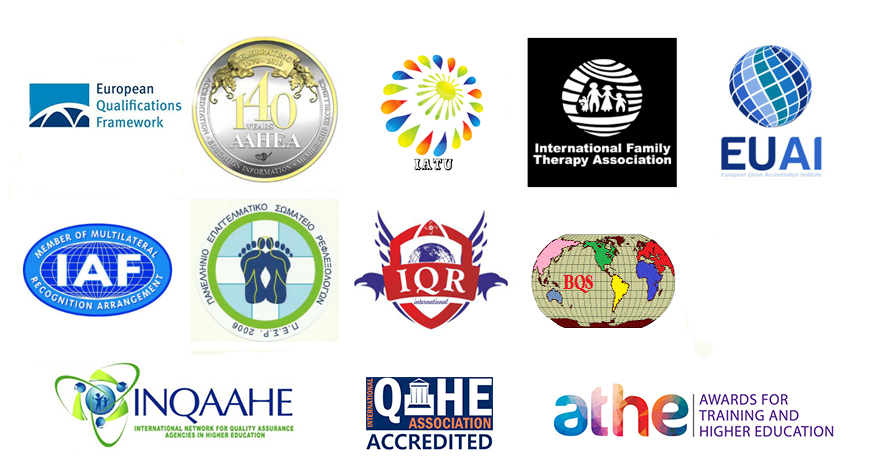
While National Accreditation is common for traditional higher learning institutions in the U.S. utilizing standard teaching methods, we note that every country has its own standards and independent accrediting organizations. Accreditation is a voluntary process and does not guarantee a worthy education. Rather, it means an institution has submitted its courses, programs, budget, and educational objectives for peer review.
Da Vinci University,s distance learning programs are unique, nontraditional, and currently not accredited by the U.S. Department of Education. This may be a determining factor for those individuals interested in pursuing certain disciplines requiring state licensing, (such as law, teaching, or medicine). It is recommended that students consider the importance of National Accreditation for a specific field or profession, and make a decision accordingly.
Although Da Vinci University,s distance learning degree programs are distinct from traditional educational institutions, we are convinced of its value and acceptance worldwide. Nontraditional programs are important because it recognizes knowledge gained outside the the classroom and incorporates a broader, more comprehensive view of the learning experience. It is precisely this recognition and view that challenges the established academic community. Many great institutions are unaccredited. We invite you to compare our programs and philosophies with traditional classroom based programs to determine which is best suited to your needs and budget.
What is accreditation?
Accreditation is the action of recognizing the qualifications of an institution and of inspection in certain intervals by certifying authorities at the end of an inspection of that institution of education as per international criteria in order to prove the service of education provided conforms to conditions, standards and regulations.
What are aims of accreditation?
- Setting standards of system, courses and lecturers as well as increasing reliability of reports.
- Facilitating international education and services.
- Making qualification and standardization transparent for students who will have services.
- Establishing conformity assessment infrastructure.
What are benefits of accreditation?
- Control and support of personnel participation and quality level,
- Improving communication among personnel,
- Acknowledging of students, who purchase the service, the institution that where they get trained and their learning of service quality,
- Targeting accreditation for development and progress of educational activities,
- Ensuring certification of management policies,
- Creation of a mechanism that will evaluate the institution,
- Officially recognition of organizations offering good services,
- Increasing of qualifications in activities
Understanding Accreditation
Perhaps the worst present day educational scam is an unaccredited institution that leaves students in tons of debt. Here’s how to understand accreditation, and know what you’re getting with your education.
What is Accreditation?
Accreditation is a quality assurance procedure that makes sure institutions meet acceptable levels of quality.
Criteria:
Criterion One. Mission
The institution’s mission guides operations. The mission is clear and publicly articulated.
Criterion Two. Integrity
The institution acts with integrity; its conduct is ethical and responsible.
Criterion Three. Teaching and Learning: Quality, Resources, and Support
No matter where or how education is offered, this institution provides quality education.
Criterion Four. Teaching and Learning: Evaluation and Improvement
This institution evaluates the effectiveness of its learning processes, and supports continuous improvement.
Criterion Five. Resources, Planning, and Institutional Effectiveness
This institution plans for the future, and has the resources and processes to fulfill its mission and improve.
Who Accredits?
Regional, National, and Program Accreditors:
Regional: Regional accreditations accredit entire institutions.
National: National accreditations accredit entire institutions, particularly institutions that operate in more than 1 state.
Programmatic: Programmatic accreditation accredits select programs from institutions.
Most traditional colleges are accredited under regional accrediting bodies.
Middle State Association of Colleges and Schools — Delaware, Pennsylvania, D.C., Maryland, New Jersey, New York, Puerto Rico, U.S. Virgin Islands
–527 institutions
New England Association of Schools and Colleges — Connecticut, Maine, Massachusetts, New Hampshire, Rhode Island, Vermont
–237 Institutions
Northwest Commission of Colleges and Universities — Alaska, Idaho, Montana, Nevada, Oregon, Utah, Washington
–163 institutions
North Central Association of Colleges and Schools — Arkansas, Arizona, Colorado, Illinois, Indiana, Iowa, Kansas, Michigan, Minnesota, Missouri, Nebraska, New Mexico, North Dakota, Ohio, Oklahoma, South Dakota, West Virginia, Wisconsin, Wyoming
–1336 Institutions
Southern Association of Colleges and Schools — Alabama, Florida, Georgia, Kentucky, Louisiana, Mississippi, North Carolina, South Carolina, Tennessee, Texas, Virginia
–822 Institutions
Western Association of Schools and Colleges — California, Hawaii, Samoa, Guam, Federated States of Micronesia, Northern Marianas Islands, Palau
–164 institutions
National accrediting is known for for-profit, vocational, career or technical programs.
Such as:
Nursing
IT
Education
Accounting
Graphic Design

The International Network for Quality Assurance Agencies in Higher Education is an International Quality Assurance body that works closely with National Accreditation bodies and academicians to control educational quality in around 140 countries. Established in 1991.

The Board of Quality Standards is an independent international quality assurance regulator and a member of the international quality assurance agencies for higher education (INQAAHE).

International Association of Transnational Universities is a worldwide education accrediting network following the GAAP standards of the board of quality standards

The European Qualifications Framework (EQF) acts as a translation device to make national qualifications more readable across Europe, promoting workers’ and learners’ mobility between countries and facilitating their lifelong learning. The EQF aims to relate different countries’ national qualifications systems to a common European reference framework. Individuals and employers will be able to use the EQF to better understand and compare the qualifications levels of different countries and different education and training systems.

